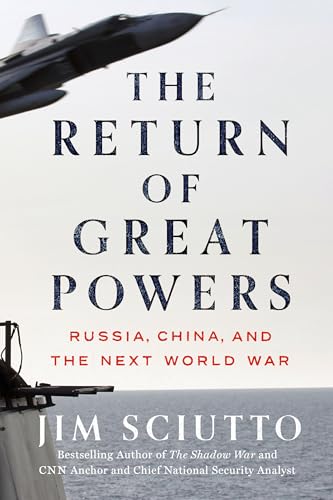

Price: $22.13
(as of Mar 25, 2024 02:40:22 UTC – Details)
The NEW book by Jim Sciutto, CNN anchor and chief national security analyst, has soared to the top of the Instant New York Times Bestseller list. This essential read takes readers on a journey to the frontlines of power, from current global conflicts to those on the horizon.
In a world where history never truly paused, Sciutto paints a stark picture of the present day. With powerful nations vying for dominance and tensions escalating across the globe, the familiar global order has crumbled. From Russia’s invasion of Ukraine to the strategic maneuvers of China and the United States, every corner of the globe is impacted by this new era of great power conflict.
Through exclusive interviews with political, military, and intelligence leaders, Sciutto offers a gripping insight into the changing landscape of global politics. His previous bestseller, The Shadow War, focused on covert operations, while The Return of Great Powers sheds light on the visible shift towards a new and uncertain era. As the world teeters on the brink of a potential World War, Sciutto asks whether Western powers can prevent catastrophe.
Packed with sobering but crucial information, this book is a must-read for anyone interested in the future of warfare and global influence. Named a Most-Anticipated Title by Foreign Policy and Politico, The Return of Great Powers has garnered praise from experts like Admiral James Stavridis. This book is a warning shot across the world’s bow, a chilling reminder of the high stakes at play in today’s global arena.
FAQ:
– Who is Jim Sciutto? Jim Sciutto is a CNN anchor and chief national security analyst known for his in-depth reporting on global security issues.
– What is The Return of Great Powers about? The book explores the shifting dynamics of global power, from the rise of new superpowers to the potential outbreak of a new World War.
– Why is this book important? The Return of Great Powers provides crucial insights into the current state of global politics and the risks of escalating conflicts.

 Latest Breaking News Online News Portal
Latest Breaking News Online News Portal





